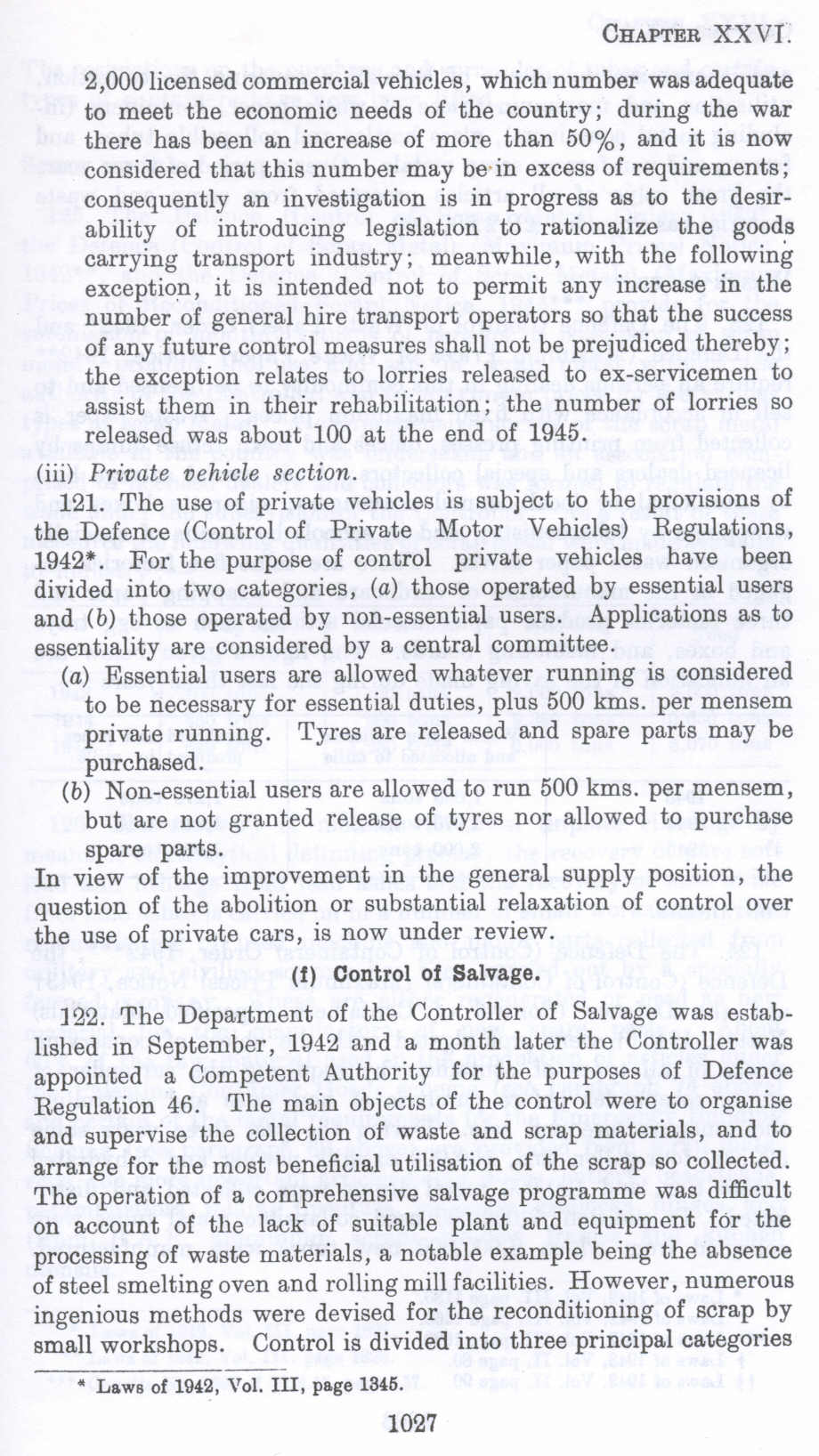| Prev | Next |  |
| Prev | Next |
| PalestineRemembered | About Us | Oral History | العربية | |
| Pictures | Zionist FAQs | Haavara | Maps | |
| Search |
| Camps |
| Districts |
| Acre |
| Baysan |
| Beersheba |
| Bethlehem |
| Gaza |
| Haifa |
| Hebron |
| Jaffa |
| Jericho |
| Jerusalem |
| Jinin |
| Nablus |
| Nazareth |
| Ramallah |
| al-Ramla |
| Safad |
| Tiberias |
| Tulkarm |
| Donate |
| Contact |
| Profile |
| Videos |
British Mandate: A Survey of Palestine: Volume II - Page 1027. Chapter XXVI: War Economic Measures: Section 4: War Time Economic Control: (f) Control of Salvage in Palestine before 1948 (Nakba) |
Disclaimer
The above documents, article, interviews, movies, podcasts, or stories reflects solely the research and opinions of its authors. PalestineRemembered.com makes its best effort to validate its contents.


Post Your Comment
*It should be NOTED that your email address won't be shared, and all communications between members will be routed via the website's mail server.
2,000 licensed commercial vehicles, which number was adequate to meet the economic needs of the country; during the war there has been an increase of more than 50%, and it is now considered that this number may be in excess of requirements; consequently an investigation is in progress as to the desirability of introducing legislation to rationalize the goods carrying transport industry; meanwhile, with the following exception, it is intended not to permit any increase in the number of general hire transport operators so that the success of any future control measures shall not be prejudiced thereby; the exception relates to lorries released to ex-servicemen to assist them in their rehabilitation ; the number of lorries so released was about 100 at the end of 1945.
(iii) Private vehicle section.
121. The use of private vehicles is subject to the provisions of the Defence (Control of Private Motor Vehicles) Regulations, 1942*. For the purpose of control private vehicles have been divided into two categories, (a) those operated by essential users and (b) those operated by non-essential users. Applications as to essentiality are considered by a central committee.
(a) Essential users are allowed whatever running is considered to be necessary for essential duties, plus 500 kms. per mensem private running. Tyres are released and spare parts may be purchased.
(b) Non-essential users are allowed to run 500 kms. per mensem, but are not granted release of tyres nor allowed to purchase spare parts.
In view of the improvement in the general supply position, the question of the abolition or substantial relaxation of control over the use of private cars, is now under review.
(f) Control of Salvage.
122. The Department of the Controller of Salvage was established in September, 1942 and a month later the Controller was appointed a Competent Authority for the purposes of Defence Regulation 46. The main objects of the control were to organise and supervise the collection of waste and scrap materials, and to arrange for the most beneficial utilisation of the scrap so collected. The operation of a comprehensive salvage programme was difficult on account of the lack of suitable plant and equipment for the processing of waste materials, a notable example being the absence of steel smelting oven and rolling mill facilities. However, numerous ingenious methods were devised for the reconditioning of scrap by small workshops. Control is divided into three principal categories
____________________________
* Laws of 1942, Vol. ill, page 1845.
1027